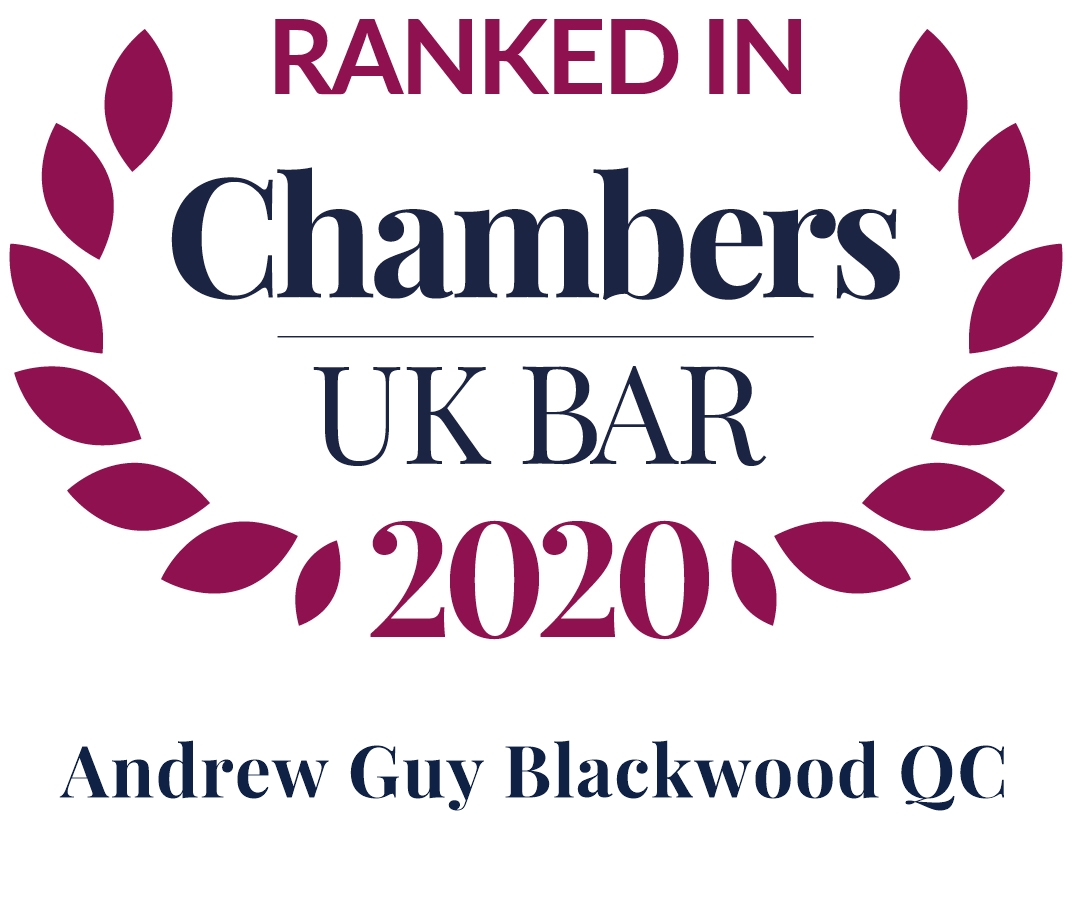'Leading Silk' (Chambers, 2022, Legal 500 2023)
The majority of Guy's practice involves disputes under contracts which contain arbitration agreements and almost all of these disputes are international in nature. Most of the arbitral disputes in which Guy is involved are very high value in nature.
Almost all of Guy's reinsurance and much of his direct insurance practice is in arbitration (he has recently been instructed in surplus treaty, excess of loss treaty, quota share, political risks and energy disputes). He is also one of the few counsel with experience of satellite in orbit insurance & reinsurance. Arbitral confidentiality prevents the naming of individual disputes in which Guy has been instructed.
Insurance & reinsurance arbitrations in which Guy has led or is leading include claims arising in connection with COVID 19, other BI, credit risk, aviation, energy treaty reinsurance, political risks (CNED, contract frustration, currency inconvertibility) and satellite in orbit. Guy is one of the few counsel with experience of satellite in orbit reinsurance (BSS 702 series).
Guy also regularly appears as an advocate in Bermuda Form references and in arbitrations under the JELC clauses.
Recent reinsurance arbitrations include:
(1) An arbitration in Bahrain under Bahraini law concerning aviation retrocession and the allocation of UN payments from the Kuwaiti reparations fund.
(2) Cession of risks to a treaty after ‘compression’ by purchase of fac. X/L protection prior to cession, alleged material non-disclosure
Herculito Maritime Limited v Gunvor International BV (The “Polar”) [2024] UKSC 2. (Supreme Court); piracy, general average, whether charterparty contained a complete code of insurance, incorporation of charterparty terms into bills of lading, manipulation, K&R, H&M and cargo insurance). This was a commercial arbitration, appealed to the Commercial Court under s. 69 of the 1996 Act, appealed further to the CA and to the Supreme Court. Guy acted for the successful insurers in the Supreme Court.
Much of Guy's time recent years has been taken up acting as lead advocate for the Hellenic Republic in a series of ICC and ICSID (ARB/16/20) arbitrations, the "Greek Submarines Arbitrations", which have been widely reported on in publications such as Global Arbitration Review. The following overview is taken from Global Arbitration Review:
ICC:
“The [Greek Submarines] dispute is already playing out in two ICC arbitrations, before tribunals chaired by Spain’s Juan Fernández-Armesto, in which the amount in dispute is thought to exceed €1 billion. Privinvest and Hellenic Shipyards first filed an ICC claim against Greece in 2013. In addition to Fernández-Armesto, the case is being heard by French arbitrator Laurent Aynès and Greek arbitrator Panayiotis Kornilakis. Greece filed a counterclaim against Privinvest and a number of other companies a year later, requesting compensation for the alleged breaches in the agreement for construction and delivery of the submarines. The panel hearing that case includes Swiss arbitrator Bernard Meyer and Austrian arbitrator Andreas Reiner.”
ICSID:
“A Lebanese investor has filed an ICSID claim against recession-struck Greece after its navy took over one of the country’s largest ship yards and the construction of submarines ordered by the state. Iskandar Safa, who co-owns Beirut-based shipbuilder Privinvest, submitted a request for arbitration on 13 June under the Lebanon-Greece bilateral investment treaty. The case has yet to be registered by ICSID but Safa issued a press release with details of the claim today (22 June). The claim relates to the Skaramangas commercial shipyard and naval base just outside Athens, which was created in 1937 to build warships. Privinvest acquired a 75 per cent stake in the yard’s operator Hellenic Shipyards in 2010, under a set of contracts to which the Greek government was also a party. Safa alleges that Greece took effective control of the shipyard four years later, after passing a law allowing its navy to complete the construction of Type 214 submarines it had ordered. The submarines were completed at the yard using Hellenic Shipyard employees at no cost to the government.”








